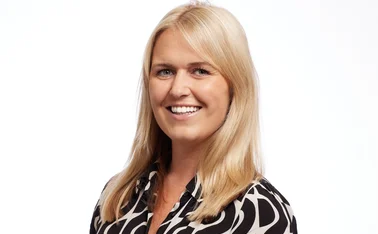
Analysis: What factors are driving the rise of consolidation in the legal sector?

Post investigates the reasons behind the consolidation surge in the legal sector after Clyde & Co and BLM become the latest law firms to merge.
At the end of March, Clyde & Co and BLM confirmed that they will merge in July 2022. The combined business will be known as Clyde & Co, and together it will have a global revenue of more than £700m per annum, a headcount of more than 5000, and offices in more than 60 cities worldwide.
BLM focuses on insurance risk and commercial law with particular strengths in casualty, personal injury, healthcare and professional liability. Clyde & Co meanwhile specialises in sectors that underpin global trade and commercial activity, including insurance, infrastructure, aviation, energy, marine and natural resources.
Following the completion of the merger, BLM will become part of Clyde & Co’s insurance practice.
Unsurprising
The fact that BLM is becoming a part of another firm is not exactly a surprise, as it has faced financial troubles for a number of years according to legal trade publication Law.com.
Between 2019 and 2020, the debt at BLM increased from £13.8m to £15m, albeit it reduced in 2021 to £3m. Meanwhile the debts and loans due to members increased from £24m to £25.7m from 2020 to 2021.
In 2017, Law.com reported that BLM’s finances were a “source of discussions in the wider insurance market for some time”.
Andrew Roberts, director of law consultancy Ampersand Legal, and chairman of the Association of Law Firm Merger Advisers, told Post that as a result of its financial situation BLM had spoken to a number of firms over recent years about potential merger options.
Roberts continued: “After the Covid-19 pandemic, it become apparent that BLM was being left behind the rest of the insurance firms. In the past, firms like RPC and BLM would have been seen as being broadly similar, whereas now RPC is much bigger than BLM. BLM has been losing its way for maybe the past 10 to 15 years.”
Roberts added that the merger between the two firms is essentially “a takeover of BLM by Clyde & Co”.
According to its financial results for 2021, the turnover at Berrymans Lace Mawer, the parent company of BLM, was £96.3m, down from £104.1m in 2020. Profit before tax for 2021 was £11.5m, which was up from £9.5m the previous year. The net debt at the firms stood at £3m, though, reduced from £15m in 2020. Meanwhile, Clyde & Co reported a turnover of £640.7m in 2021, up from £627.1m in 2020. Profit before tax for 2021 was 164.1m, up from £143.8m in 2020.
Roberts continued: “BLM has some debt, but it also has some good income streams. Clyde & Co wouldn’t have paid much for it, but it would have assumed the debt.”
In addition, according to Roberts, the merger could allow Clyde & Co to get onto panels that it has not been appointed on but BLM has.
Post looked at the panels Clyde & Co and BLM are on, where information was in public domain. BLM is currently acting for Allianz, LV and Zurich, and Clyde & Co is acting for Axa, QBE and Zurich. Information for a number of top insurers was not publicly available.
Karl Parr, claims technical and central services director at Axa, pointed out that the consolidation in the legal sector can present benefits for insurers “as strength and capacity is centralised, bringing expertise together in one place”.
Parr said: “We work with a panel of law firms that are able to cover all our needs and deliver to our customers. If done well, consolidation can provide better service and cover more of our requirements under one roof.”
Multiple mergers
The Clyde & Co and BLM merger is not the only merger happening in the legal sector right now, with Weightmans and Radcliffes Le Brasseur also looking to merge.
So far, both businesses have agreed to the headline terms, and had been due to complete the merger in March 2022, but this date has slipped. The merged firm, which will be known as Weightmans LLP, will have 225 partners and a total headcount of 1400 people.
According to Roberts, merger activity has increased in recent years. Solicitors Regulation Authority figures show that the number of regulated law firms has decreased in the past year from 10,011 firms in March 2021, to 9813 firms in March 2022 (see box, p11) – the lowest number since the SRA started collecting figures on its regulated population in July 2010 when there were 10,885 registered firms. The SRA Figures also show that 99 firms have closed between January 2021 and December 2021 due to a merger.
Roberts said: “There is so much consolidation going on in the legal world at the moment – it’s unprecedented. No one’s ever seen this before.”
A firm needs to be of a “certain size to be able to bid for certain projects”, Roberts pointed out. He explained: “If you are not a £50m firm, or you don’t have offices in certain location, you can’t bid for certain type of work. Coming together makes sense because it gives [firms] the scale and the geographical spread.”
Mergers & acquisitions
When announcing the merger, Clyde & Co said that the market is “changing at pace” and its clients across the UK are consolidating in order to realise efficiencies and economies of scale.
According to Navigating Increasing Complexity, the latest edition of Clyde & Co’s Insurance Growth Report, there were 418 completed mergers and acquisitions worldwide in the insurance sector in 2021, up from 407 the previous year. And M&A activity is not slowing down. So far in 2022, in the UK alone notable deals have included US broker Brown & Brown's acquisition of GRP and Markerstudy purchase BGL Insurance.
Clyde & Co said: “At the same time, panel sizes are reducing, and insurance composites are increasingly looking for national, full-service firms with leading individuals that can offer regional support – a demand that the combined firm will meet.
Much like our clients, law firms are also consolidating. For us, consolidation means we will create unrivalled scale and investment potential to deliver the innovation, automation and richness of data that our clients require.”
It acknowledged that some conflicts are “inevitable” when the two “leading firms” in the space consolidate. However, it is “supremely confident that this merger presents very few conflicts, given the clean synergies in the existing relationships”.
Recruitment
According to the figures from the Recruitment and Employment Confederation and KPMG, the UK is currently experiencing its worst labour shortage since 1997, and the legal sector is not excluded from the crisis. With Brexit, many skilled professionals – including lawyers – have left the UK to return to their home country.
According to the data from recruiter BCL Legal and labour market analytics group Vacancysoft, legal firms in the UK have advertised more than 2300 jobs for London-based associates last year. This represents an increase of 131% on 2020 and 37% on 2019 numbers. Some firms could look at M&A as an answer to this problem.
Robert explained: “There is war for talent at the moment, because there just aren’t enough good lawyers around. Clyde & Co has 970-odd lawyers and BLM has 380. All of a sudden Clyde & Co has access to 380 new lawyers it wouldn’t have had access to before, and to recruit that many people it would take it forever, and you are never going to grow that many people.”
According to its latest financial report, BLM had 754 solicitors and 576 administrative and support staff in 2021, down from 828 and 615, respectively, in 2020. Clyde & Co had 1962 solicitors and 1500 support staff in 2021, down from 2044 and 1594, respectively, in 2020.
While it is more difficult to recruit solicitors, according to the figures from SRA, the number of solicitors on the roll has increased from 207,916 in March 2021 to 214,876 in March 2022, with the increase of practising solicitors rising from 154,170 in March 2021 to 154,980 in March 2022.
One other driver is price pressure, Roberts pointed out, explaining: “If you’re a law firm, and you’ve got an insurer that gives you a lot of work, you’re vulnerable to it pushing down the prices that you can charge it. By merging, you can get economy of scale – you can maybe save on offices, and you only need one HR team. It’s the little things, but they add up to make your law firm much more efficient.
“That’s what’s really pushing consolidation. Big insurers cutting the rates they’re willing to pay, so the firms need to merge together.”
Insurer legal panels
- Aviva RPC, Eversheds Sutherland and Bryan Cave Leighton Paisner, Slaughter and May, Allen and Overy and Pinsent Masons.
- RSA RPC, Pinsent Masons and Slaughter and May.
- UK Insurance (Direct Line, Churchill, Privilege, Green Flag) Slaughter and May, Allen & Over, Norton Rose, RPC, Clyde & Co and Pinsent Masons.
- Axa Clyde & Co, DAC Beachcroft, Horwich Farrelly, Kennedys, Keoghs and Taylor Rose.
- AIG Womble Bond Dickinson, Kennedys and Mills & Reeve.
- Allianz and LV Keoghs, DWF and BLM.
- Ageas Keoghs, Slaughter and May.
- NFU Mutual BTO Solicitors, DAC Beachcroft, DWF, John McKee and Son Solicitors.
- QBE Mayer Brown, Clyde & Co, CMS Cameron McKenna Nabarro Olswang, DAC Beachcroft and RPC.
- Zurich Kennedys, Clyde & Co, DAC Beachcroft, DWF Law and BLM.
Going forward after Covid-19
Zulon Begum, partner at partnership and employment law firm CM Murray, said she “would not be surprised” if there was more consolidation in the legal sector in the coming months.
Begum continued: “I imagine a lot of that has been on hold because of Covid-19, and people have been distracted. First, by Covid-19 and dealing with it, and then probably the unexpected levels of business that people had over Covid-19 because most of law firms have done pretty well. Not all firms, mind you, but a lot of them, especially those big commercial practices.”
According to data from business advisers and chartered accountants Hazlewoods, law firm mergers fell to a nine-year low as a result of the Covid-19 pandemic.
Hazlewoods found that only 107 law firm mergers were completed in 2020, down 25% on the 143 mergers that occurred in 2019, and less than half of the 278 mergers that took place in 2011. It noted that the fall in mergers was due to the Covid-19 pandemic and economic fallout, which left some firms “more cautious of making acquisitions during a period of uncertainty”.
However, Hazlewoods added that there is still a “pipeline of high-quality targets”, which means that “deals should be back on the menu quickly once the demand returns”.
Begum added: “Now that we’re coming out from Covid-19, people will be looking at consolidating, especially those that have struggled during the pandemic. BLM might have been one of those firms that perhaps was not doing so well financially, and that was one of the reasons for it merging with Clyde & Co.”
Redundancy consultation
In response to the Covid-19 pandemic, BLM launched a redundancy consultation in August 2020, which was expected to effect 89 roles within its legal support and corporate services teams. The firm had also furloughed 170 people within less than a month of the scheme starting – nearly 10% of its total headcount.
Begum continued: “There
may be other firms like this that didn’t do as well financially, which will now be looking to consolidate and make themselves more financially sustainable.”
“There may also be people out there who are looking to consolidate from a strategic perspective. Both Clyde & Co and BLM said there is a lot of consolidation going on with their clients, so law firms are consolidating to scale up effectively, and be able to service clients on a much bigger scale,” she concluded.
Only users who have a paid subscription or are part of a corporate subscription are able to print or copy content.
To access these options, along with all other subscription benefits, please contact info@postonline.co.uk or view our subscription options here: https://subscriptions.postonline.co.uk/subscribe
You are currently unable to print this content. Please contact info@postonline.co.uk to find out more.
You are currently unable to copy this content. Please contact info@postonline.co.uk to find out more.
Copyright Infopro Digital Limited. All rights reserved.
As outlined in our terms and conditions, https://www.infopro-digital.com/terms-and-conditions/subscriptions/ (point 2.4), printing is limited to a single copy.
If you would like to purchase additional rights please email info@postonline.co.uk
Copyright Infopro Digital Limited. All rights reserved.
You may share this content using our article tools. As outlined in our terms and conditions, https://www.infopro-digital.com/terms-and-conditions/subscriptions/ (clause 2.4), an Authorised User may only make one copy of the materials for their own personal use. You must also comply with the restrictions in clause 2.5.
If you would like to purchase additional rights please email info@postonline.co.uk








